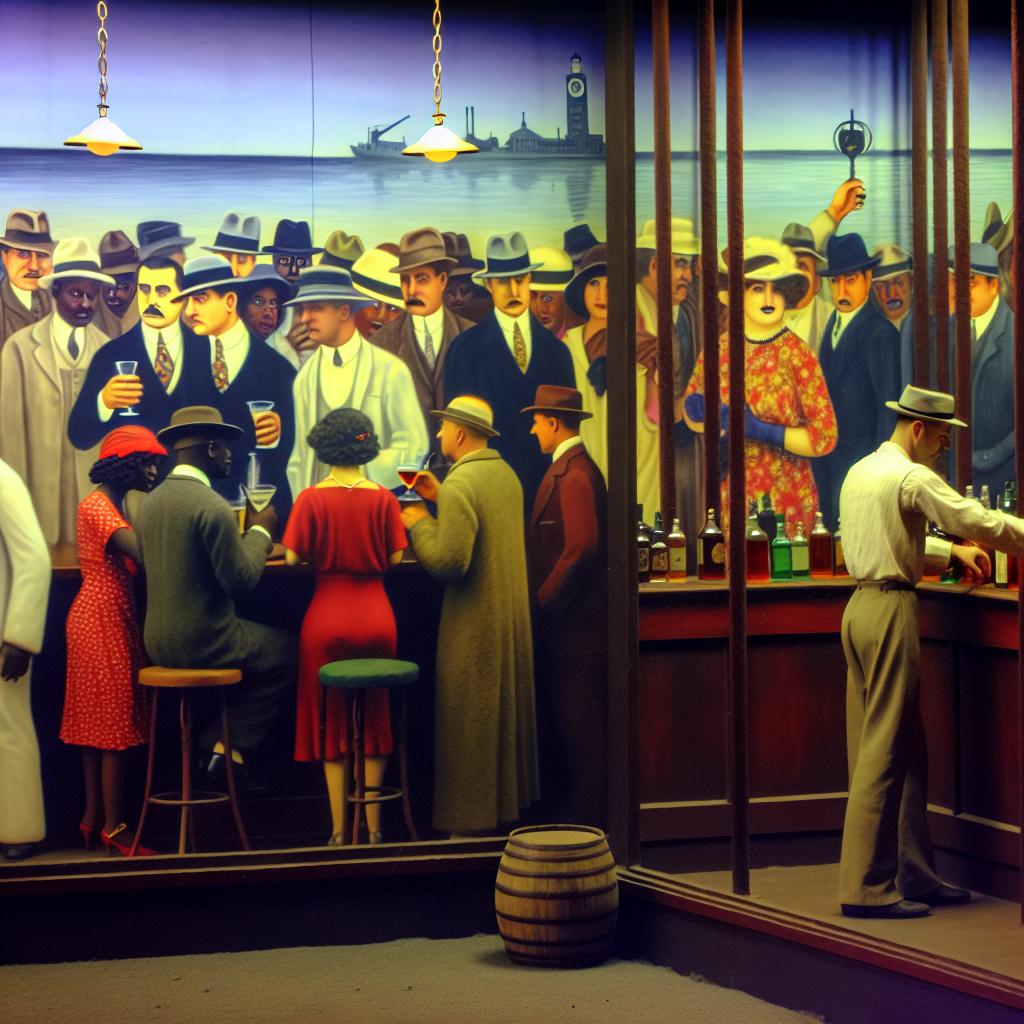Introduction to Wichita’s Involvement in Prohibition
The city of Wichita, Kansas, played a noteworthy role during the Prohibition era in the United States. Prohibition, which lasted from 1920 to 1933, was a nationwide constitutional ban on the production, importation, transportation, and sale of alcoholic beverages. This period greatly influenced numerous cities across the country, including Wichita.
Historical Context of Prohibition
Prohibition was enacted through the 18th Amendment to the U.S. Constitution and the Volstead Act. This was a culmination of a lengthy temperance movement that advocated for the reduction or elimination of alcohol consumption. The movement gained momentum in the late 19th and early 20th centuries. Kansas, being a pioneer in this domain, became the first state to outlaw alcoholic beverages in 1881. This early adoption placed Wichita at the forefront of the Prohibition movement as the nation moved into the Prohibition era.
Wichita’s Implementation of Prohibition Laws
Wichita’s enforcement of Prohibition laws was a complex undertaking. Local law enforcement agencies and government officials faced numerous challenges in their attempt to curb illegal activities associated with the production and distribution of alcohol, often referred to as bootlegging. Despite these efforts, the illegal liquor trade thrived, and Wichita, like many other cities, became a hub for clandestine operations. Speakeasies, which were establishments selling alcohol under the guise of legitimate businesses, proliferated.
Over the years, the struggle between enforcing Prohibition laws and battling bootleggers became an intricate part of the city’s narrative. Officers often found themselves working around the clock, dealing with the sophisticated methods employed by those looking to exploit the ban for profit. As speakeasies proliferated, they became notorious not just for selling illicit beverages but also for being centers of organized crime, jazz music, and new social norms.
Key Figures in Wichita During Prohibition
Several influential figures emerged in Wichita during this period, working either for or against the Prohibition laws. Prominent individuals included dedicated law enforcement officers who committed to enforcing the ban, despite the sometimes overwhelming odds. On the other side of the law were bootleggers and gangsters who discovered lucrative opportunities within the illegal alcohol trade.
The dynamic between these opposing parties significantly influenced Wichita’s social and economic landscape during the Prohibition years. Some of these law enforcers became renowned for their steadfast approach to tackling the illegal alcohol trade, enhancing their reputation but, simultaneously, often attracting threats from those involved in organized crime. Conversely, several bootleggers gained local notoriety, as their illicit empires expanded, sometimes even garnering a degree of public admiration for their audacity and cunning.
The Economic Impact of Prohibition on Wichita
Prohibition had a notable economic impact on Wichita, affecting both legitimate and illegitimate sectors. The city’s economy suffered from the loss of revenue initially generated by legal alcohol sales and related businesses. Pubs, breweries, and distilleries faced closure, leading to job losses and economic realignment.
However, the underground market provided economic opportunities for those willing to engage in illegal activities. This illicit economy grew robust, with speakeasies, illegal breweries, and other such enterprises. As it expanded, so did the need for allied services, ranging from the illegal manufacture of alcohol to its transportation and distribution, creating a shadow economy that flourished beneath the surface.
This complex dynamic contributed to a multifaceted socio-economic environment, with certain sectors such as law enforcement experiencing increased costs and workloads. They attempted, often in vain, to combat bootlegging and associated criminal activities. The financial resources allocated to these efforts sometimes stretched local budgets, prompting debates on the efficacy and sustainability of Prohibition itself.
Legacy of Prohibition in Wichita
The legacy of Prohibition in Wichita is still observable today. This era highlighted the profound challenges involved in enforcing wide-ranging alcohol bans and significantly influenced subsequent legislation and public attitudes toward alcohol consumption. When Prohibition was eventually repealed with the 21st Amendment in 1933, it marked a return to legalized alcohol sales. However, the influence of the 13-year ban persisted in the legal and cultural framework of the city.
The experience of Prohibition led to a greater emphasis on regulating alcohol rather than outright banning it in subsequent decades. This was evident in the laws that replaced nationwide Prohibition, which focused on restricting certain sales and consumption aspects while generating tax revenue from alcohol sales. Public attitudes, influenced by the era’s social upheaval, began gravitating towards moderation rather than abstinence.
For further reading and to gain a more profound understanding of specific historical events in Wichita during Prohibition, you can explore resources provided by the Wichita-Sedgwick County Historical Museum.

